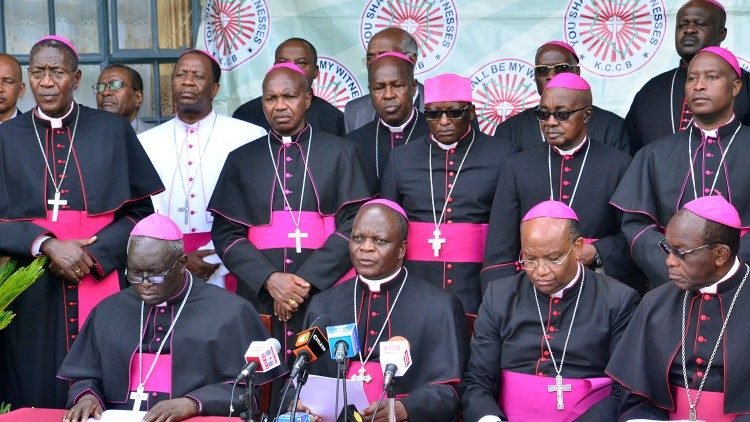
The Role of Religious Leaders in Kenyan Society
In Kenya, religious leaders have historically played a pivotal role in shaping not only spiritual life but also the political landscape. From the early days of the nation, churches and other religious institutions have been at the forefront of various social movements, often acting as advocates for justice, equity, and moral governance. The moral authority of these leaders has influenced the actions of their congregations, encouraging civic engagement and social responsibility in a country faced with numerous challenges, including corruption and inequality.
One defining moment in Kenya’s history was the significant involvement of religious leaders during the push for multi-party democracy in the early 1990s. They not only called for democratic reforms but also mobilized citizens to stand against oppressive regimes. The churches served as platforms for dialogue, where issues concerning human rights, governance, and social justice were addressed. This involvement not only helped to galvanize public opinion but also demonstrated how religious organizations can serve as catalysts for political change.
The influence of religious leaders in Kenya transcends mere political engagement. Many churches have taken a proactive stance on social issues, highlighting concerns such as poverty alleviation, healthcare access, and education. For example, religious groups have been instrumental in combating the HIV/AIDS epidemic, establishing treatment programs, and raising awareness within communities. These actions underscore their commitment to social welfare, reflecting a deep-rooted belief that faith and social responsibility are intertwined.
Currently, the opposition from prominent religious leaders regarding government policies indicates a profound concern about the nation’s moral compass. This shift raises questions about the government’s alignment with the values that these leaders espouse. The dissent reflects not just a discontent with specific policies but a larger societal unease regarding governance and the commitment to upholding democratic principles. As the landscape evolves, the influential role of religious leaders will likely continue to be a defining factor in Kenyan society.
Key Concerns Raised by Religious Leaders

In recent discussions surrounding the relationship between the government and its religious allies, several key concerns have emerged from notable religious leaders. Central to their grievances is the sentiment that the government has made numerous promises yet has delivered little in terms of substantive action. This perception of unfulfilled commitments has left many in the religious community disillusioned, particularly regarding economic development initiatives that were expected to uplift the lives of ordinary citizens.
One of the primary areas of concern pertains to the government’s failure to adequately address economic challenges facing Kenyans. Religious leaders have pointed out that pledges made to boost the economy and improve living standards have not been realized. They argue that the lack of effective policy implementation has deepened poverty and exacerbated inequality, leaving communities struggling to make ends meet. In this context, the disconnect between governmental promises and actual economic outcomes has been a significant point of contention.
Furthermore, religious leaders have expressed their apprehensions regarding governance issues, emphasizing a lack of accountability and transparency from government officials. Many have called for the government to engage in open dialogues with the faith community to rebuild trust and alignment of goals. The frustration felt by religious leaders is echoed by many ordinary Kenyans, who experience the day-to-day impacts of economic hardship and governance failures. This shared sentiment highlights a critical bond between the advocacy efforts of religious leaders and the struggles faced by the populace.
The combination of unmet economic promises and governance obstacles has fostered a growing sentiment of disappointment and concern among religious figures. They are calling for renewed commitment from the government toward fulfilling its obligations, emphasizing the need for authentic engagement with the communities they serve. As this dialogue continues, the hope remains that these critiques will spur meaningful action and lead to more effective governance in the future.
The Akorino Movement Speaks Out
The Akorino movement, known for its predominantly apolitical stance, has recently made headlines with its vocal opposition to certain government policies in Kenya. This development is particularly significant given the movement’s historical inclination towards reticence in political matters. For decades, the Akorino faithful, who are characterized by their distinct dress code and conservative lifestyle, have focused on spiritual growth and community support rather than engaging in political discourse. However, the recent pronouncements from prominent figures within this group indicate a shifting paradigm.
Several factors appear to have triggered this newfound engagement. The government’s policies regarding land use, education, and healthcare have drawn criticism from various sectors of society, including religious groups. The Akorino movement’s leaders have expressed concerns that these policies undermine the values and needs of their communities. With their significant following, the Akorino’s stance could influence public opinion and sway governmental decisions, signaling a potential awakening among religious organizations to assert their role in societal governance.
This shift might not only reshape the Akorino’s identity but could also affect the broader political landscape in Kenya. With the government increasingly scrutinized by different factions, including traditional religious leaders, the Akorino movement’s engagement signals a broader call for accountability and representation of diverse voices within the national discourse. Their involvement may encourage other faith-based groups to adopt a more proactive approach in political advocacy, challenging the status quo and asserting their influence in public affairs.
The implications of this transformation extend beyond the Akorino community; they reflect a rising consciousness among religious groups in Kenya and could serve as a vital catalyst for political reform. As the Akorino movement continues to vocalize its position, it remains to be seen how the government will respond and whether this will lead to a more inclusive dialogue or further polarization.
Growing Unity Among Religious Leaders
In recent times, there has been a notable increase in the unity among various religious leaders, particularly exemplified by the collaboration between Anglican and Catholic leaders in opposing certain government actions. This unity is significant not only for its religious implications but also for its political impact. By standing together, religious leaders amplify their voices and make a more formidable statement against policies they view as detrimental to their values and communities. This strengthened alliance signals a collective stance that resonates with many individuals who feel alienated by current governmental decisions.
The collaboration between these two denominations serves as a powerful model for interfaith solidarity. As Anglican and Catholic leaders present a united front, they considerably boost the opposition’s message. Their combined efforts encourage other religious groups to reassess their positions and possibly join the coalition. The question arises: will denominations such as the Seventh-day Adventist (SDA) Church feel motivated to align with this growing movement? The implications of such collaboration can extend beyond mere opposition to government policies; they could foster a broader platform for dialogue and action that encompasses multifaceted social issues affecting various communities.
Moreover, this emerging solidarity between religious leaders has broader implications in the political realm. Interfaith cooperation can enrich the public discourse by introducing diverse perspectives, ultimately fostering a sense of community among disparate groups. Such interactions may enable religious leaders to articulate shared values that transcend denominational lines, thereby influencing governmental approaches to social justice, peace, and moral governance. The collaborative efforts observed in the present political landscape are emblematic of a shift towards a more unified religious constituency, which seeks to reinforce the moral fabric of society. In conclusion, the growing unity among religious leaders appears to be a promising avenue for fostering enhanced cooperation and engagement in political matters. This trend highlights the vital role that faith communities play in shaping the future of governance.



